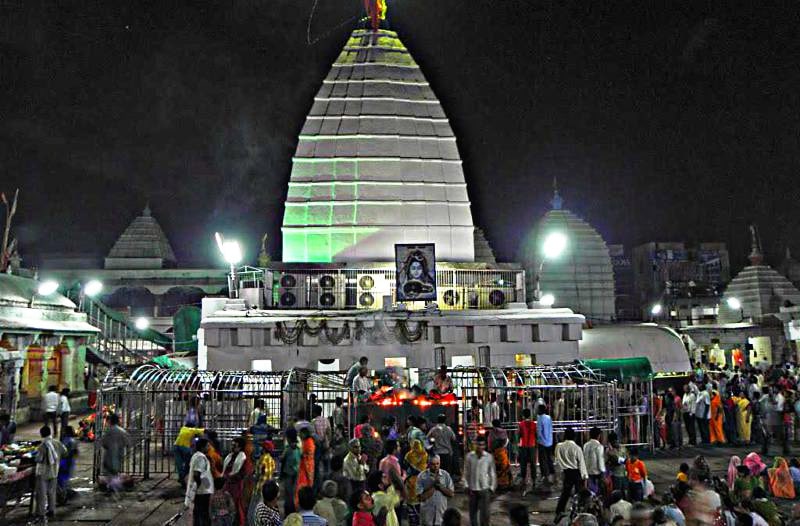“Vidyanath” is a term that can have multiple meanings and interpretations, depending on the context in which it is used. One common interpretation relates to Vidyanath as a name or epithet of Lord Shiva, particularly in the context of his association with knowledge, wisdom, and learning. In Hindu mythology and religious texts, Lord Shiva is often revered as the supreme teacher (Adi Guru) and the source of all knowledge and wisdom. Additionally, “Vidyanath” can also refer to individuals, institutions, or concepts related to education, learning, and scholarship. In this essay, we will explore the significance of Vidyanath in Hindu mythology, its association with Lord Shiva, and its broader implications in the realm of education and knowledge.
Vidyanath in Hindu Mythology
In Hindu mythology, Lord Shiva is often referred to by various names and epithets that highlight different aspects of his divine nature. One such epithet is “Vidyanath,” which translates to “Lord of Knowledge” or “Master of Wisdom.” As Vidyanath, Lord Shiva embodies the essence of knowledge, enlightenment, and spiritual wisdom. He is revered as the ultimate source of all learning and the cosmic teacher who imparts knowledge to humanity. In artistic representations and iconography, Lord Shiva as Vidyanath is often depicted in meditative posture, holding a trident (trishula) and a drum (damaru), symbolizing his mastery over the physical and spiritual realms. He is adorned with serpents, crescent moon, and ashes, signifying his transcendence beyond worldly attachments and his role as the supreme guru (teacher) guiding humanity towards enlightenment. Lord Shiva’s association with knowledge and learning is often complemented by his consort, Goddess Saraswati, who is revered as the embodiment of wisdom, speech, and learning in Hinduism. The union of Shiva and Saraswati symbolizes the harmonious integration of spiritual knowledge (represented by Shiva) and worldly knowledge (represented by Saraswati), emphasizing the holistic nature of education and enlightenment.
Vidyanath in the Context of Education
Beyond its mythological connotations, “Vidyanath” also holds significance in the context of education, scholarship, and intellectual pursuits. In Hindu philosophy and tradition, the pursuit of knowledge (vidya) is considered a sacred endeavor, leading to self-realization and spiritual liberation. Vidyanath, in this sense, represents the embodiment of wisdom and the pursuit of higher learning. The concept of Vidyanath finds resonance in ancient Indian educational systems, particularly the Vedic tradition and the Gurukul system. In the Vedic period, knowledge was transmitted orally from guru (teacher) to shishya (student) in an informal setting, fostering a deep sense of reverence and devotion towards the guru as the embodiment of knowledge (Vidyanath). Similarly, the Gurukul system, prevalent in ancient India, emphasized the holistic development of students through experiential learning, moral instruction, and spiritual guidance imparted by the guru. In contemporary times, the spirit of Vidyanath continues to inspire educators, scholars, and students in their pursuit of knowledge and wisdom. Educational institutions, academic societies, and research centers dedicated to the advancement of learning and scholarship embody the ethos of Vidyanath, striving to cultivate intellect, curiosity, and critical thinking skills among learners. The quest for knowledge, innovation, and intellectual inquiry remains a cornerstone of human civilization, reflecting the timeless relevance of Vidyanath in shaping the future of society.
Vidyanath Temples and Institutions
Across India, there are temples and shrines dedicated to Vidyanath, where devotees gather to seek blessings for success in their academic pursuits, examinations, and scholarly endeavors. These temples serve as spiritual sanctuaries for students, teachers, and intellectuals, providing a sacred space for prayer, meditation, and reflection. The presence of Vidyanath temples underscores the importance of knowledge and learning in Hindu culture, highlighting the inseparable connection between spirituality and education. Historically, Gurukuls served as centers of learning and intellectual exchange, where students received instruction in various subjects ranging from Vedas, philosophy, and literature to mathematics, astronomy, and medicine. While traditional Gurukuls have largely given way to modern educational institutions, the spirit of Vidyanath continues to inspire educators and students in their pursuit of academic excellence and intellectual growth. Today, numerous schools, colleges, and universities across India bear the name “Vidyanath” or incorporate it into their institutional ethos, reflecting a commitment to nurturing intellect and character in the next generation of leaders and scholars.
Vidyanath Festivals and Celebrations
Guru Purnima
One of the most significant festivals associated with Vidyanath is Guru Purnima, celebrated annually to honor and express gratitude towards teachers, mentors, and spiritual guides. Guru Purnima falls on the full moon day (Purnima) in the Hindu month of Ashadha (June-July) and holds special significance for students and disciples who pay homage to their gurus (teachers) as embodiments of Vidyanath. The festival is marked by rituals, prayers, and offerings to gurus, symbolizing the timeless bond between teacher and student and the transmission of knowledge across generations.
Saraswati Puja
Another important festival related to Vidyanath is Saraswati Puja, dedicated to the worship of Goddess Saraswati, the patron deity of learning, arts, and wisdom. Saraswati Puja is celebrated with great fervor in educational institutions, homes, and communities across India, where devotees seek the blessings of Saraswati for success in their academic pursuits and creative endeavors. The festival is marked by rituals, devotional songs, and cultural performances, highlighting the importance of knowledge and creativity in human life. “Vidyanath” represents not only Lord Shiva as the embodiment of knowledge and wisdom but also the broader ethos of education, scholarship, and intellectual pursuit in Hindu culture. Whether revered as the cosmic teacher (Adi Guru) guiding humanity towards enlightenment or embodied in the form of dedicated temples, institutions, and festivals, Vidyanath serves as a timeless symbol of the transformative power of learning and the enduring quest for knowledge and wisdom in the human journey towards self-realization and spiritual fulfillment.

